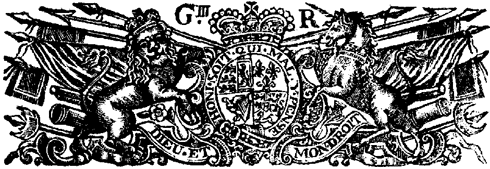

The First Foot Guards
We are a Revolutionary War
reenactment group based in Boston MA,
accurately portraying the royal household regiment that is now known as
The Grenadier Guards
The
malodorous streets of London
in the eighteenth century
London - or the "great wen" as it was also labeled, was a huge metropolis.
In order to feed its multitudes, vegetables, fish, fowl and meat were taken
to London. Herds of cattle, geese and chicken were driven there every day. All
kinds of trades were carried out, many of them extremely foul. Wool-preparation,
tanneries and tallow-chandleries were particularly malodorous. There was no
organized means of disposal of the by-products of these industries. Much offal
and garbage was simply slopped into the streets, along with the contents of
the chamber-pots. Walking under the jutties (the old wooden houses that projected
out over the streets) one constanly had to be aware of the shout of "gardyloo!"
(= gardez l'eau. Watch out for the 'water') which preceded the splash. Streets
that had proper drainage usually had a channel in the middle of the street (unlike
the more modern system of a gutters each side). Other large cities were no different
from London.
Although poets extolled London
and its beauty (notably Wordsworth's "Earth has not anything to show more
fair..." ) the reality could be grittier.
The satirist, Jonathan Swift, 1667-1745 (author of 'Gulliver's Travels')
wrote the following satirical poem.
You've seen the usual poetry written in the 18th Century - it is romantic, high-flown,
rhetorical, and overloaded with classical allusions. This poem is a short swift
kick in the pants - a dose of the reality of how things were in the city in
those days.
A Description of a City Shower
by Jonathan Swift
Careful observers may
foretell the hour
(By sure prognostics) when to dread a shower:
While rain depends, the pensive cat gives o'er
Her frolics, and pursues her tail no more.
Returning home at night,
you'll find the sink
Strike your offended sense with double stink.
If you be wise, then go not for to dine;
You'll spend in coach hire more than save in wine.
A coming shower your
shooting corns presage,
Old aches throb, your hollow tooth will rage.
Sauntering in coffeehouse is Dulman seen;
He damns the climate and complains of spleen.
Meanwhile the South,
rising with dabbled wings,
A sable cloud athwart the welkin flings,
That swilled more liquor than it could contain,
And, like a drunkard, gives it up again.
Brisk Susan whips her
linen from the rope,
While the first drizzling shower is borne aslope:
Such that sprinkling which some careless quean
Flirts on you from her mop, but not so clean:
You fly, invoke the gods; then turning stop
To rail; she singing, still whirls on her mop.
Not yet the dust had
shunned the unequal strife,
But, aided by the wind, fought still for life,
And wafted with its foe by violent gust,
'Twas doubtful which was rain and which was dust.
Ah! where must needy
poet seek for aid,
When dust and rain at once his coat invade?
Sole coat, where dust cemented by the rain
Erects the nap, and leaves a mingled stain.
Now in contiguous drops
the flood comes down,
Threatening with deluge this devoted town.
To shops in crowds the daggled females fly,
Pretend to cheapen goods, but nothing buy.
The Templar spruce,
while every spout's abroach,
Stays till 'tis fair, yet seems to call a coach.
The tucked-up sempstress walks with hasty strides,
While streams run down her oiled umbrella's sides.
Here various kinds,
by various fortunes led,
Commence acquaintance underneath a shed.
Triumphant Tories and desponding Whigs
Forget their feuds, and join to save their wigs.
Boxed in a chair the
beau impatient sits,
While spouts run clattering o'er the roof by fits,
And ever and anon with frightful din
The leather sounds; he trembles from within.
So when Troy chairmen
bore the wooden steed,
Pregnant with Greeks impatient to be freed
(Those bully Greeks, who, as the moderns do,
Instead of paying chairmen, doth run them through),
Laocoon struck the outside with his spear,
And each imprisoned hero quaked for fear.
Now from all parts
the swelling kennels flow,
And bear their trophies with them as they go:
Filth of all hues and odors seem to tell
What street they sailed from, by their sight and smell.
They, as each torrent
drives with rapid force,
From Smithfield or St. Pulchre's shape their course,
And in huge confluence joined at Snow Hill ridge,
Fall from the conduit prone to Holborn Bridge.
Sweeping from butchers' stalls, dung, guts, and blood,
Drowned puppies, stinking sprats, all drenched in mud,
Dead cats, and turnip tops, come tumbling down the flood.
NEXT
ARTICLE
Go to
"This Date in History"
Click